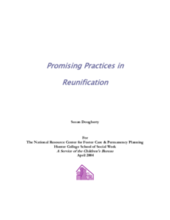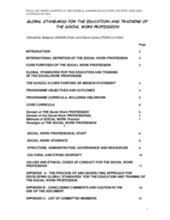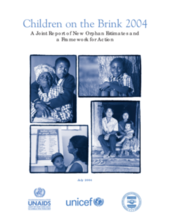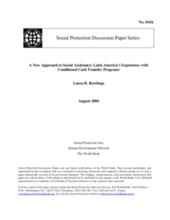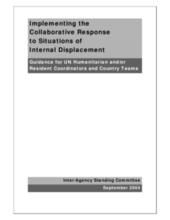Displaying 14011 - 14020 of 14428
A list of US programs and program approaches that influence family reunification outcomes. Relevant for social workers, policy-makers, and others involved in foster care, after care, and family reunification.
Outlines the minimum standards for child welfare case management in Romania.
Outlines a set of global standards for schools of social work.
A report on orphans and vulnerable children in Malawi. It examines how orphanhood increases vulnerability though decreased access to formal schooling and increased exposure to child labor. Includes detailed statistical tables.
This report examines the current state of orphans and vulnerable children. It provides a regional overview, highlights trends, urges support for alternatives to institutional care and child participation, and presents a framework of protection and care of orphans and vulnerable children. Includes comprehensive data appendices.
This paper examines the impact of conditional cash transfers in Latin America. It illustrates successful short-term impact, but recommends continued evaluation to assess the long-term impact.
This paper presents a set of global policy guidelines for the protection of children without parental care. It recommends the need for a global understanding of best practices within the legal framework of the UN Committee on the Rights of the Child.
A brief fact sheet on the multilevel support needs of children without parental care. Includes a brief section on statistical data and examples of UNICEF action in several countries around the world.
This research study provides statistical information on institutional care of children under the age of 12 in Brazil. Interviews with institutions and children are conducted, and reasons for separation from family, length of time in care, status of family relationship, religious orientation and financial support of the institutions are highlighted.
A document with guidelines and the framework for a comprehensive and accurate response to the problem of displaced persons.

